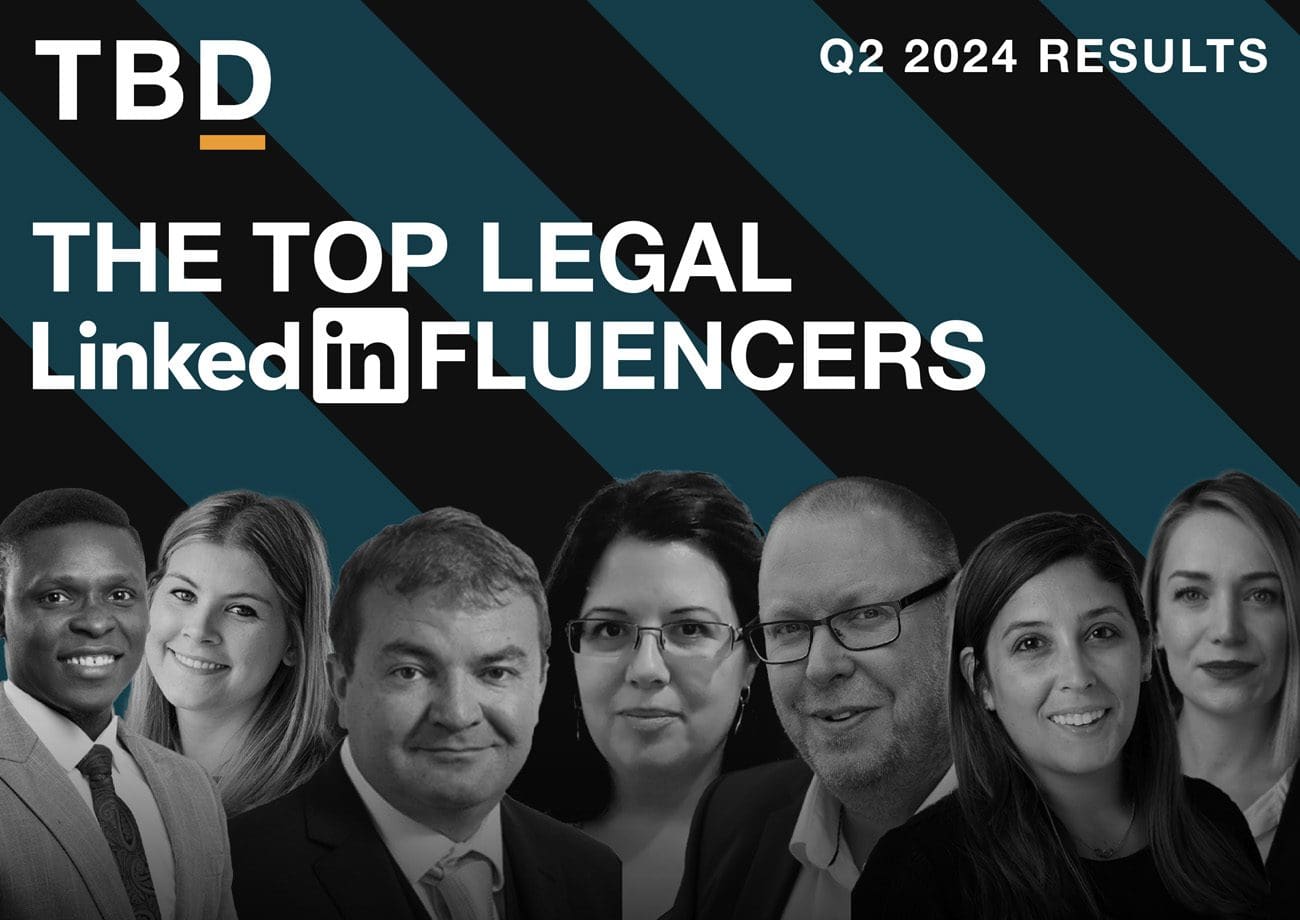Always on – a view from the front line
The thought piece
In a recent article, The Lawyer’s in-house reporter and ex-lawyer Lucie Cruz describes what she calls the problem of an “always on” culture in the legal industry, something she experienced first-hand during her time as a trainee. It is not unique to any particular firm or level within the profession, she feels, but is instead a problem that permeates the sector at large: trainees, associates and partners alike all feel under pressure to be permanently available at the drop of an email.
The “always on” culture can feel inevitable to those just joining the profession – permanent availability is regarded as the gold standard in a highly competitive environment, and pretty much expected of those trainees hoping to stay on at the firm once they have qualified. This is because the more available an associate is, the more likely they are to be given more work, receive promotions and get on the fast track to partnership.
Clients also expect law firms to be there for them at all times, no matter what the crisis happens to be – and they will take their business elsewhere without batting an eye if that expectation isn’t met. So the pressures on lawyers are both internal and external. What is needed, Cruz feels, is a reminder of what constitutes reasonable working hours and practices at the respective place of work.
However, that’s easier said than done in an industry where late nights and constant weekend work can come to seem like the norm, where lawyers sign waivers to escape the 48-hour working regulations, and where there might be an agreement on core hours, which are then routinely exceeded to meet business demands – that’s just the nature of the beast, it seems.
Cruz poses a very important question: “if this is expected of lawyers, how do lawyers earn the right to switch off? Is it up to an individual to ask for it, demand it, or is it up to employers to give it?”
Her reflections are prompted by the news that Slaughter and May introduced a work-life balance code for its employees in early October. Cruz worries that the policy is intended to encourage, rather than directly permit, the firm’s lawyers to switch off. What she would really like to see within such a policy is “an assurance that a firm’s duty of care stretches to ensuring that departments are adequately staffed and supported so that regular and incessant late and weekend working is not the norm.”
Cruz’s sources at a Magic Circle firm tell her that there is a culture of partners taking on ever more work despite knowing that the firm’s teams are already stretched thin. It is unclear whether this is happening due to a need to make more money or to maintain the firm’s competitive edge. Perhaps it is both – either way, Cruz opines, “firms can’t hide the fact that the great resignation and increasing focus on wellbeing is showing the industry that large salaries and swanky offices just don’t cut it anymore.”
She goes on to conclude: “Until cultural issues of supply, demand, work allocation and recruitment of staff are addressed, will a limited policy really help an industry where business need, ultimately, still ranks above a right to switch off? Probably not.”
A lop-sided perspective?
All power to Lucie for writing this article – it’s hard speaking out and even harder when you’re taking on a strategy by the most famous law firm in the land.
Here at TBD, we decided to dig a little deeper and reach out via our network to get the thoughts of some industry leaders on this subject. Here’s what they had to say about the “always on” culture:
Florence Brocklesby, founder and principal of Bellevue Law
“First, if you have a business model built on a combination of chargeable hours and very high chargeout rates, and everyone who works in the firm (from trainees to partners) wants to be paid eye-wateringly for their level, inevitably this will mean long hours and the provision of exceptional standards of service. While there are various measures which firms can and should put in place, this is a circle which can’t be squared.
“Firms, and importantly, lawyers too will need to accept lower – albeit still objectively very comfortable – levels of remuneration if they are serious about addressing this. You cannot be a newly qualified lawyer on £120K per annum in a business which charges by the hour and expect not to work very long hours. Individuals need to take responsibility for their own wellbeing by making career choices which provide them with the work-life balance they desire – for some this may be working round the clock for a period (or for their entire career) and for others something less intense.
“The good news for these individuals is that they are exceptionally highly qualified and will have plenty of alternative options, which will remain more than well paid, if they so prefer. There are actually plenty of firms doing high quality, interesting work for clients while providing their teams with a better quality of life.
“And if firms are, rightly, concerned about the impact of their current models on wellbeing, they can only address this via more fundamental change, which will impact profitability, at least in the short term, for example, staffing matters more generously to reduce average working hours. This would also benefit clients, who may prefer to pay for more lawyers, less tired, to work on their matters.”
~ Catherine Hyde ~, founder of Hooper Hyde
“I think it’s a horrible concept and should be abolished. I think any law firm that encourages this kind of behaviour is putting profit before people. It breeds a culture of stressed, overworked employees who will ultimately burn out.
“Do I think people need to be ‘on’ sometimes? Yes I do, when the situation arises on occasion because an important deal is going through or a piece of work needs to get done and there is a tight deadline or timescale. Should it be actively encouraged as the norm? Absolutely not. We are losing incredible lawyers from the profession because of this kind of culture. It also ultimately causes more issues and is more difficult for the main caregiver in a family who is often the Mum.”
Laura Brunnen, founder and managing director of The Legal Strategist
“I blame it all on Blackberries. I remember them coming in when I was an NQ at Slaughters in the early 2000s. They seemed so flash and fancy <hollow laugh> – little did we know these little handheld gadgets would transform our lives for good and bad.
Combined with a people-pleasing/slightly addictive personality, it’s been great for my career but terrible for my work/life balance.
I just can’t switch off.
What if there’s something urgent that could crater the deal if I don’t respond immediately?
What if there’s a new client and I need to show them how on the ball we are?
What if, what if, what if….
All the firms I was at (there were also stints at K&E, Fried Frank, KWM and Reed Smith) expected the highest levels of client responsiveness. Combine that with clients who are scattered over the globe from the US West Coast to Asia – well, there’s always a time zone with an active client.
I’ve written before about how it drives my husband crazy.
On holiday, going round a museum, sitting on a ski lift, waiting in a queue –just a minute whilst I whip out the BlackBerry (now the iPhone of course) and check my emails.
And when you do make a conscious effort to turn it off for a period of time, you risk an avalanche of emails hitting you at next log-in.
Urgh!
It also makes me a nightmare customer. I expect people to get back to me very quickly and start fretting when there isn’t a near-instant response.
The good news is, I’m slowly trying to retrain myself.
But there’s 20 years of conditioning to undo…”
Helen Burness, founder and managing director of Saltmarsh Marketing
“Like any profession, I think law has its good aspects and its problematic ones. I think partnership models and the billable hour do not necessarily drive the best professional behaviours and we have a history as a profession of being for the elite and privileged that we are only just starting to unpick…and I think this is what causes issues.
“But speaking to my friend who works for the NHS, they have really similar issues there when it comes to tip-toeing around senior consultants who get to behave EXACTLY as they want, as they have all the expertise. And there are also diversity issues in the senior echelons of the medical profession.”
Over to you
Many thanks to our contributors for sharing their thoughts with us. What do our readers think about the “always on” culture in the legal sector? Is it an inevitable part of a profession where people expect to be paid vast salaries? Or is it a toxic anachronism whose day has surely come? We would love to hear your thoughts in the comments section below.
My sense is that the upcoming recession will give us a chance to redress the balance. It can be done. As Linda Urquhart OBE once said to me “One Friday night, everyone at Freshfields was beavering away in the office getting a deal done and I signed off the Scottish elements from a boat in the middle of a loch.” Class.
Our post of the week – what has being a lawyer ruined for you?
We saw a LinkedIn post this week that really tickled us – Montreal-based counsel Joel Roy asked his legal colleagues what being a lawyer has ruined for them (for Joel, it’s condo ownership), and the comments section is both funny and thought-provoking.
The answers range from “taking my kids to birthday parties at trampoline parks” (this sparked its own mini-thread about waivers and negligence) to “recreational reading” and even “friendships” – this last one due to people asking for free advice.
One person wrote: “I see data breaches. Everywhere.” To which someone else replied: “I see potential personal injury everywhere”. Part of the always-on culture discussed in our article below?
Feel free to head on over to Joel’s post to continue the conversation, or start your own discussion in the comments section below.
Our other post of the week (our newsletter, our rules)
This week, Jennifer Young – managing partner of, and construction law specialist for, Ledingham Chalmers LLP – gave a shoutout to her colleague Georgia Shirreffs for performing life-saving CPR not once but twice!
A visitor to the firm’s office collapsed and had to be rushed to hospital. Georgia performed CPR while waiting for the paramedics to arrive. The ambulance team said that the outcome – the unfortunate individual was responsive on the way to hospital and is now recovering – would have been very different without Georgia’s intervention. This is the second that she has been able to assist in a medical emergency, after performing CPR on a member of the public who collapsed in the street earlier this year. What a star!
Mind the gap
A landmark study into the class pay gap conducted by the Social Mobility Foundation (SMF) has concluded that professionals from working-class backgrounds earn £6,718 less on average than their more privileged peers. The analysis of pay used data from the Office for National Statistics’ Labour Force Survey from 2014 to 2021 across professional and managerial occupations, which account for more than a third of the UK workforce. According to this data, working-class chief executives earn £16,749 less than their peers; finance managers are paid £11,427 less; and accountants and solicitors have a gap of more than £8,000.
Alan Milburn, the former health secretary and now chair of the SMF, has urged ministers to legally require companies to measure and report their class pay gaps. According to SMF, there are only three firms currently doing so: KPMG, PwC and Clifford Chance. If Milburn’s proposal is adopted, class could become its own protected characteristic, alongside age, disability, gender reassignment, marriage and civil partnership, pregnancy and maternity, race, religion or belief, sex, and sexual orientation. There is a strong case to me made here, to avoid both discrimination and reverse discrimination.
The news in brief
If you only read a couple of articles this week…
- Google to pay $391m in its biggest privacy settlement
- London loses its crown as Europe’s most valuable stock market
- Sullivan & Cromwell features in this FT piece on the collapse of FTX, the crypto exchange
- Lawyers and accountants now outnumber bankers according to Cat Rutter Pooley in The curious case of Britain’s ‘missing’ banking jobs
- Norton Rose Fulbright has doubled its net cash, according to its recent LLP accounts, putting it in a strong position to weather a potential period of economic challenges
Dates for your diary
- 19 November – The Law Fair-Manchester – The law fair where prospective law students can meet top UK law providers to discover undergraduate and postgraduate course opportunities for the 2023 intake and beyond. The fair will be held at the Mercure Manchester Piccadilly Hotel.
- 24 November – The Power of Collaboration for the Complex Client – All-day conference aimed at professionals engaging with and supporting people with complex physical and mental health needs. Speakers will include Huw Ponting – Head of Personal Injury & Court Appointed Deputy and Partner at Enable Law, and Mark Bailey, Head of Complex Injury at DAC Beachcroft. The event is specifically tailored to solicitors (litigators, defendants and deputies), amongst other professionals. The conference will be held in the offices of Enable Law in Bristol.
- 24 November – The People in Law Conference – This conference focuses on people management in the legal sector in combination with real-world law firm insights. You can expect to hear from law firm experts and representatives from the wider world of professional services, alongside high-profile inspirational speakers. The all-day event will be held at the Ham Yard Hotel in London.
Enjoy the weekend when you get there!
Thanks,
Si Marshall
simon.marshall@tbdmarketing.co.uk







